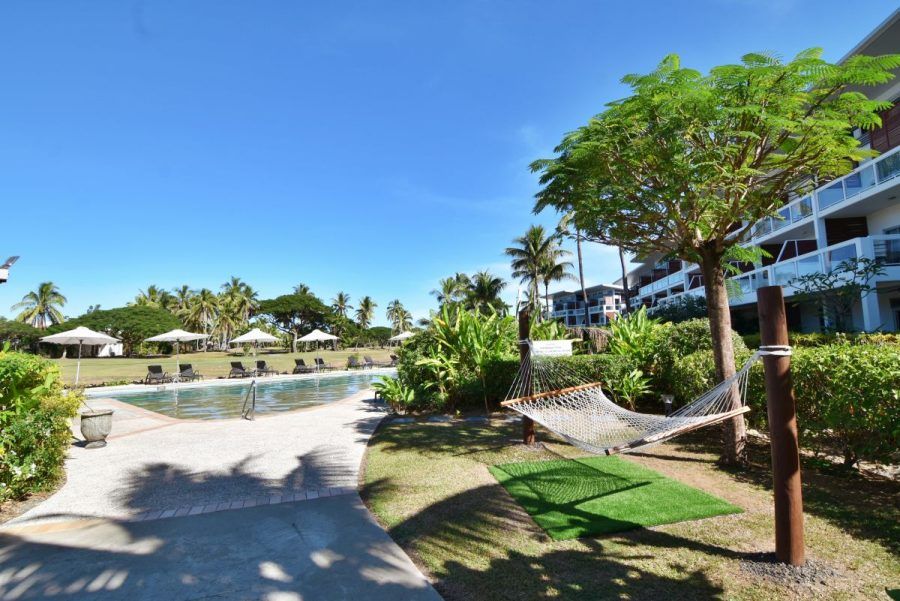Advice on Choosing a Homestay in Fiji
Staying with the locals in a quaint Fijian village is an enriching experience, not to mention super affordable, but it’s not for everyone. It means forgoing the lavish confines of a resort for the humble quarters of a friendly Fijian family who are eager to share their way of life. Staying with a Fijian family is more than a type of accommodation, it’s an experience in itself. Find out how to choose a homestay in Fiji and if it’s right for you with this guide.
Table of Contents
5 Tips for Staying in a Fijian Homestay
- For staying in a village, bring a sevusevu (gift) and respect village protocol, such as wearing clothing that covers the knees and not wearing a hat – see Fiji Village Etiquette: What to Do When Visiting a Fijian Village for advice
- Bring cash for meals and activities
- Meals are usually available to purchase at a Fijian homestay for a cheap price (but just check this with your hosts so you can bring the right cash)
- Be wary of drinking water in Fiji’s villages, which the locals will drink but can cause traveller’s diarrhoea for tourists – see Can You Drink the Water in Fiji? for more advice
- Homestays can be in very basic accommodation, far from the standard of resorts, so make sure a homestay is something you can handle.
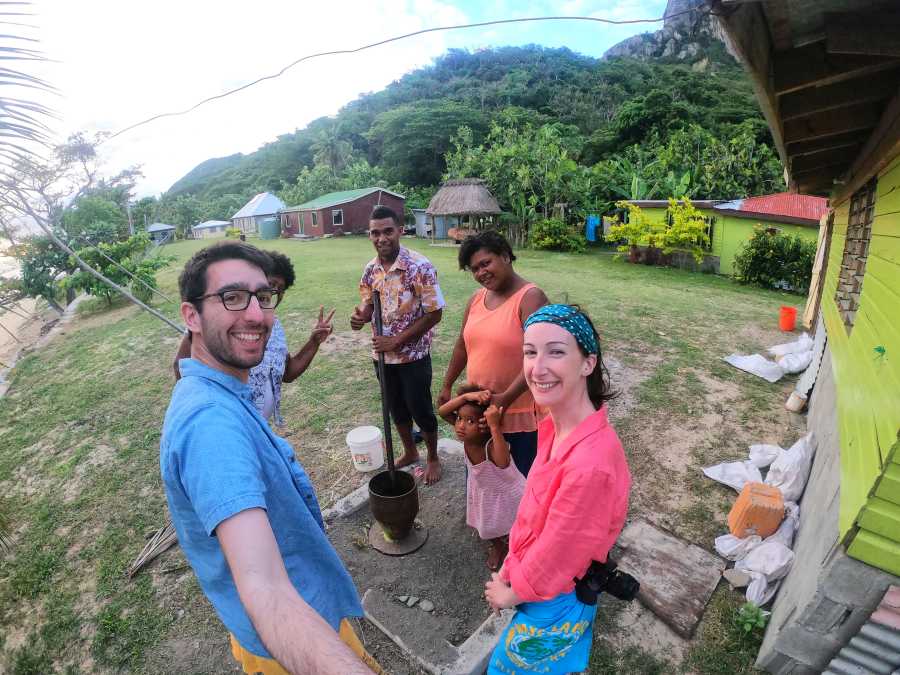 © FijiPocketGuide.com
© FijiPocketGuide.comWhat is a Homestay in Fiji?
Homestays in Fiji are when locals open up their spare rooms for guests to stay and be part of the family. Some homestays, especially in villages, may have separate bures (bungalows) for guests.
What Types of Homestays are in Fiji?
Homestays in Fiji typically fall into three categories, village stays, farmstays and town stays. For village stays, you will need to respect the village protocol and likely find yourself being part of the community. Farmstays are typically found inland in Fiji’s larger islands where you’ll stay with a local family on a farm. Homestays in Fiji’s towns are either with Fijian, Indo-Fijian or expat families and are more likely to be shared with other guests, much like a bed & breakfast.
What is the Food Like at a Fiji Homestay?
Homestays usually have breakfast included, while meals are likely to be provided for a small fee, especially in remote areas. You’ll usually eat before the family and be given more than you can possibly finish. Don’t worry about being rude if you can’t clean your plate – you’ll notice that the family is happy to finish off the leftovers so nothing goes to waste. The food served is typically classic Fijian cuisine. Expect plenty of seafood (bones and all!), along with starchy root crops like taro and breadfruit. You might also get to sample some Indo-Fijian curries, which are deliciously spicy and, again, often come with bones intact. It’s all part of the authentic Fijian dining experience! Remember, meals at a homestay are a great opportunity to immerse yourself in local culture and cuisine. Don’t be shy about asking questions about the food – your hosts will likely be more than happy to share their culinary knowledge with you.
Check out Traditional Fijian Food: 20 Foods to Try in Fiji for typical Fijian and Indo-Fijian meals that you might get to try at a homestay in Fiji.
What are the Activities at a Fiji Homestay?
Fijian homestays typically offer a range of activities organised by your hosts or with villagers. These can include snorkelling trips, cooking and crafting lessons, fishing, and more. One of the great advantages of homestay activities is that they’re usually much cheaper than similar experiences at resorts. Here are some popular activities you might enjoy:
- Snorkelling trips: Explore the vibrant marine life in nearby reefs.
- Cooking lessons: Learn to prepare traditional Fijian dishes.
- Crafting workshops: Try your hand at weaving.
- Fishing expeditions: Join locals for a day of fishing in the lagoon or open sea.
- Village tours: Get an informal guided tour of the local village and learn about Fijian culture (usually free as part of staying in a village).
- Kava ceremonies: Participate in this important Fijian cultural tradition (usually free as part of staying in a village).
Remember to bring cash to pay for these activities. Not only are they generally more affordable than resort options, but many villages do not have card facilities. This way, you can fully immerse yourself in the local experiences without worrying about payment methods. By participating in these activities, you’re not just having fun – you’re also directly supporting the local community. It’s a win-win situation that adds depth to your Fijian adventure!
How to Find and Book Fijian Homestays
Homestays in Fiji can be found listed on Airbnb, Expedia and Booking.com, while we also list many in our Village & Homestay category.
 © FijiPocketGuide.com
© FijiPocketGuide.comLocation, What is Nearby and How to Get There?
Homestays in Fiji can be found across the islands with more and more being listed every month. The largest abundance of homestays, however, is in the Yasawa Islands, Nadi, Suva, the Suncoast (north Viti Levu) and Taveuni. Learn more about these island groups/destinations and decide whether they are right for you by checking out the following guides:
- The Complete Guide to Nadi
- The Complete Guide to Suva
- The Complete Guide to the Suncoast
- The Complete Guide to the Yasawa Islands
- The Complete Guide to Taveuni.
Once you have decided which island group or destination to visit, you’re going to need to figure out how to get to your chosen homestay. Some homestays are located on the outer islands of Fiji, which requires overwater travel, which is time-consuming and can be pricey. Learn about travelling to Fiji’s outer islands in The Guide to Travelling in Fiji by Ferry and The Complete Guide to Domestic Flights in Fiji.
When it comes to nearby attractions and shops, only homestays in Fiji’s towns will have these things available. Many of Fiji’s homestays are remote where your only source of food and entertainment is provided by your host family – consider a homestay in a town if you want more independence.
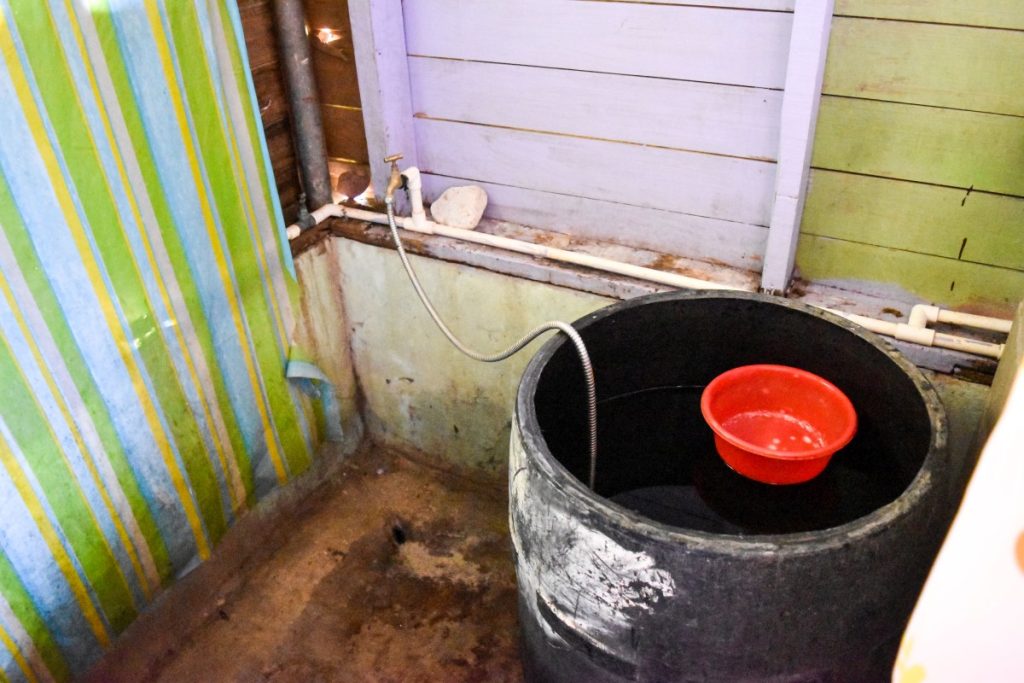 © FijiPocketGuide.com
© FijiPocketGuide.comWhat Facilities to Expect at a Homestay
At a homestay in Fiji, it’s best to come with little expectations and just go with the flow. Don’t expect WiFi, don’t expect an ensuite bathroom… You shouldn’t even expect hot water! You will be experiencing real island life, which isn’t full of the luxuries that many of us take for granted.
Some (but not all) facilities and services you can expect in Fijian homestays include:
- Private bedroom
- Shared bathroom
- Lifts to town (could be for a fee)
- Breakfast
- Lunch and dinner (likely for an additional fee)
- Communal kitchen
- Complimentary activities
- Paid activities (snorkelling trips, fishing, cooking lessons, etc.)
- Gardens, beach, farm landscape, etc.
- Car parking
- WiFi (occasionally).
For any additional activities or meals that the host might offer, make sure you have some cash handy so that you can pay your way.
More About How to Choose a Homestay in Fiji
That’s it for our guide to how to choose a homestay in Fiji, for more information about Fiji accommodation, check out the following articles:
- 15 Best Homestays in Fiji
- Where to Stay in Fiji: The Best Accommodations in Fiji
- 10 Authentic Village Stays in Fiji
Finally, if there’s anything we’ve missed, you’re likely to find it in How to Pick the Best Budget Accommodation in Fiji for You.
Sources:
The information in this guide has been compiled from our extensive research, travel and experiences across Fiji and the South Pacific, accumulated over more than a decade of numerous visits to each destination. Additional sources for this guide include the following:
- Tourism Fiji (General travel advice - Updated [2025])
- Fiji Hotel and Tourism Association (Tourism trade association - Updated [2025])
- SPTO (Pacific tourism advice - Updated [2025])
- Ministry of Tourism and Civil Aviation (Tourism statistics - Updated [2025])
- Fiji Immigration (Visa and immigration advice - Updated [2025])
- Fiji Revenue & Customs Service (Customs and visitor taxes - Updated [2025])
- Biosecurity Authority of Fiji (Biosecurity advice - Updated [2025])
- Fiji Meteorological Service (Weather forecast and warnings - Updated [2025])
- Fiji Bureau of Statistics (Statistics and travel data - Updated [2025])
- Land Transport Authority (Road safety advice - Updated [2025])
- Safe Travel (New Zealand travel advisory for Fiji - Updated [2025])
- Smart Traveller (Australia travel advisory for Fiji - Updated [2025])
- Travel.State.Gov (U.S. travel advisory for Fiji - Updated [2025])
Our editorial standards: At Fiji Pocket Guide, we uphold strict editorial standards to ensure accurate and quality content.

About The Author
Robin (Ruveni) C.
This article was reviewed and published by Robin, the co-founder of Fiji Pocket Guide. He has lived, worked and travelled across 16 different countries before settling in the South Pacific, so he knows a thing or two about planning the perfect trip in this corner of the world. Robin is also the co-founder of several other South Pacific travel guides and is a regular host of webinars with the South Pacific Tourism Organisation.
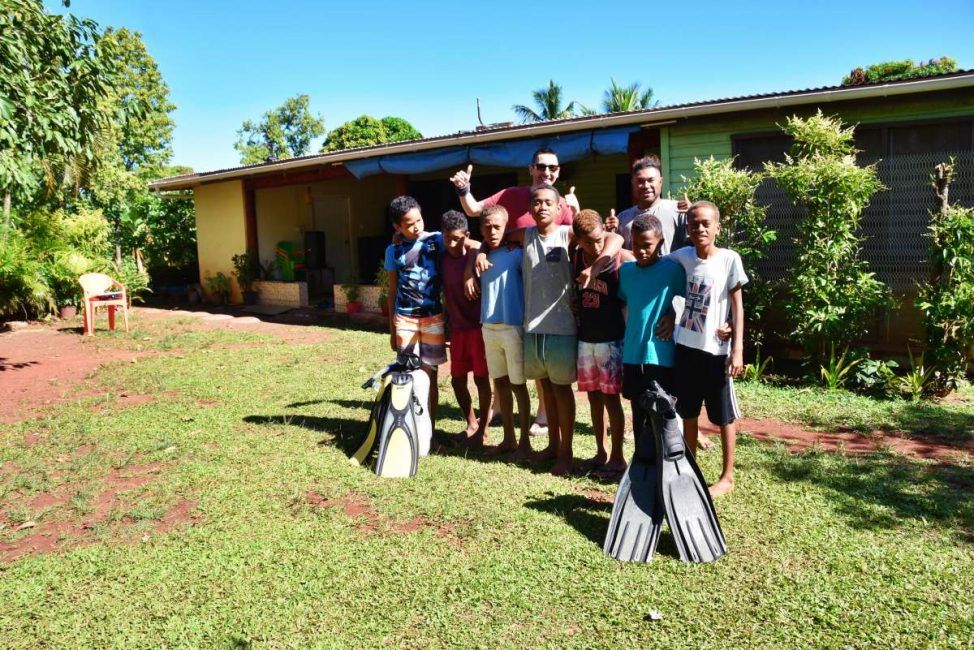
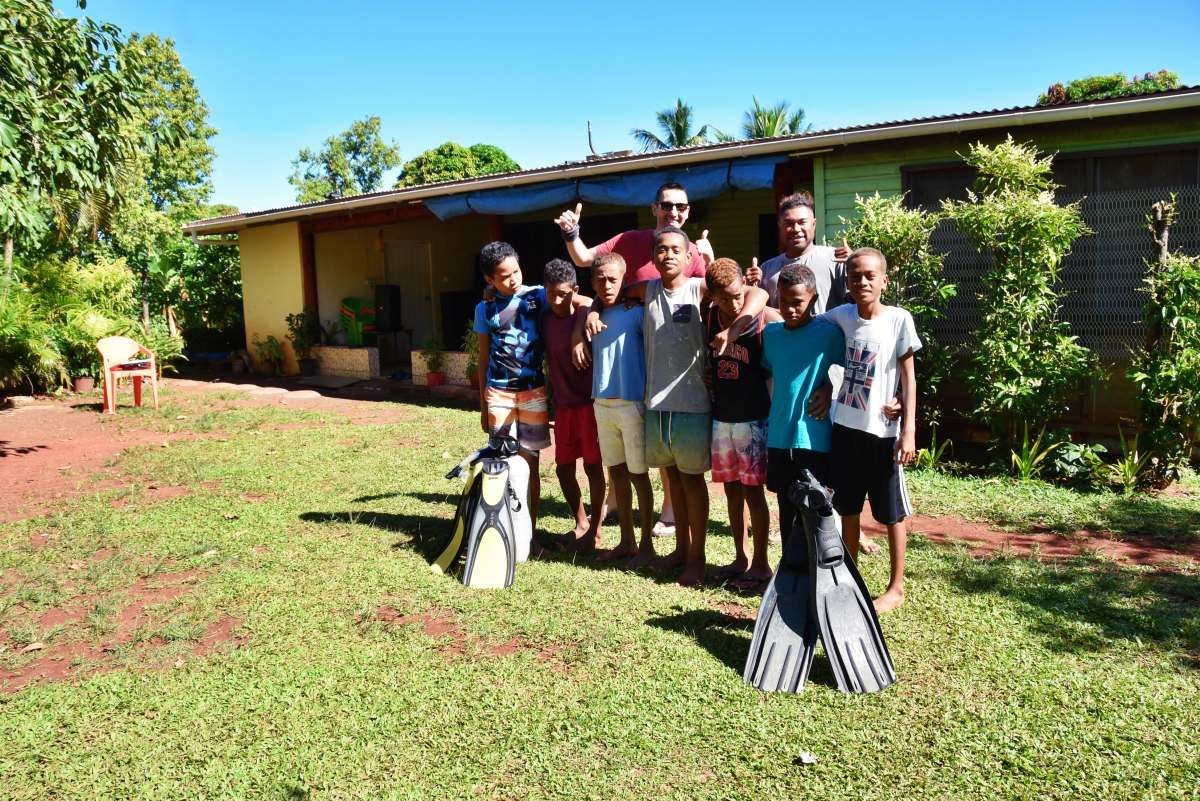


![20 Best Backpacker Hostels in Fiji ???? [2025]](https://fijipocketguide.com/wp-content/uploads/2024/03/Mantaray-Resort-CREDIT-Fiji-Pocket-Guide-3-900x675.jpg)
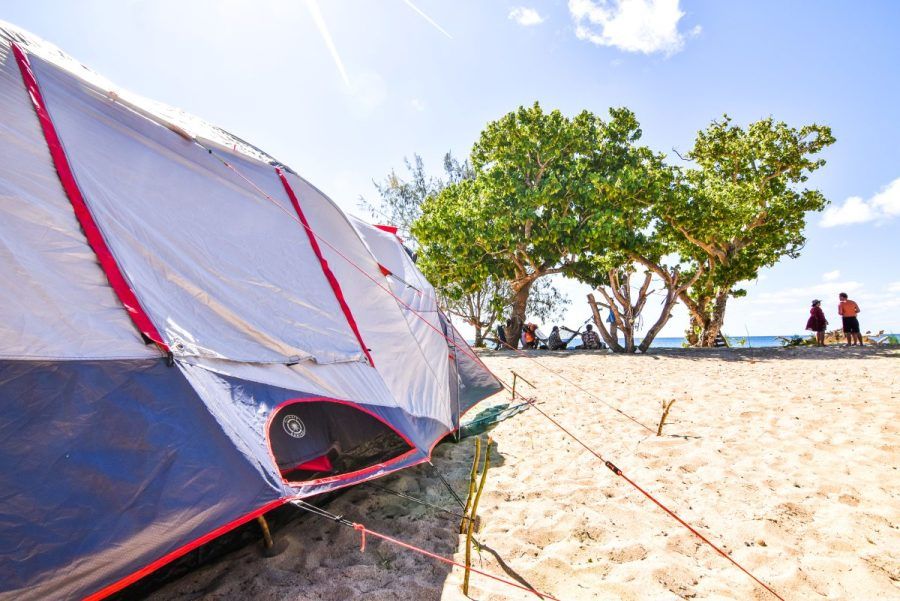
![20 Best Budget Accommodations in Fiji ???? [2025]](https://fijipocketguide.com/wp-content/uploads/2024/03/Uprising-Restaurant-Pool-CREDIT-Fiji-Pocket-Guide-1-1-900x601.jpg)


![10 Best Backpacker Resorts in Nadi [2025]](https://fijipocketguide.com/wp-content/uploads/2024/03/Bluewater-Lodge-CREDIT-Fiji-Pocket-Guide-1-1-900x601.jpg)
![15 BEST Budget Accommodations in Suva ???? [2025]](https://fijipocketguide.com/wp-content/uploads/2024/03/Capricorn-Hotel-2-CREDIT-Fiji-Pocket-Guide-1-1-900x601.jpg)
